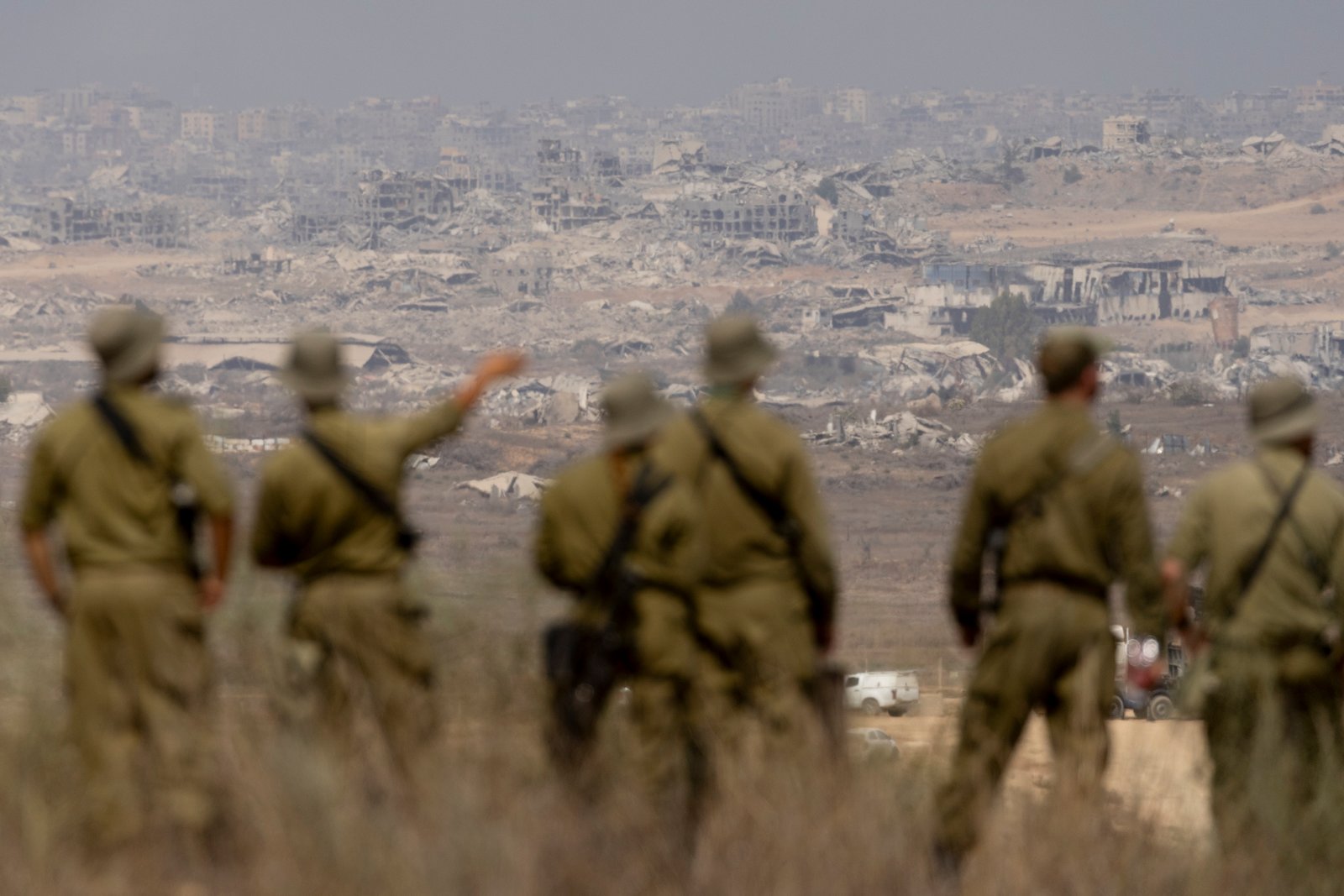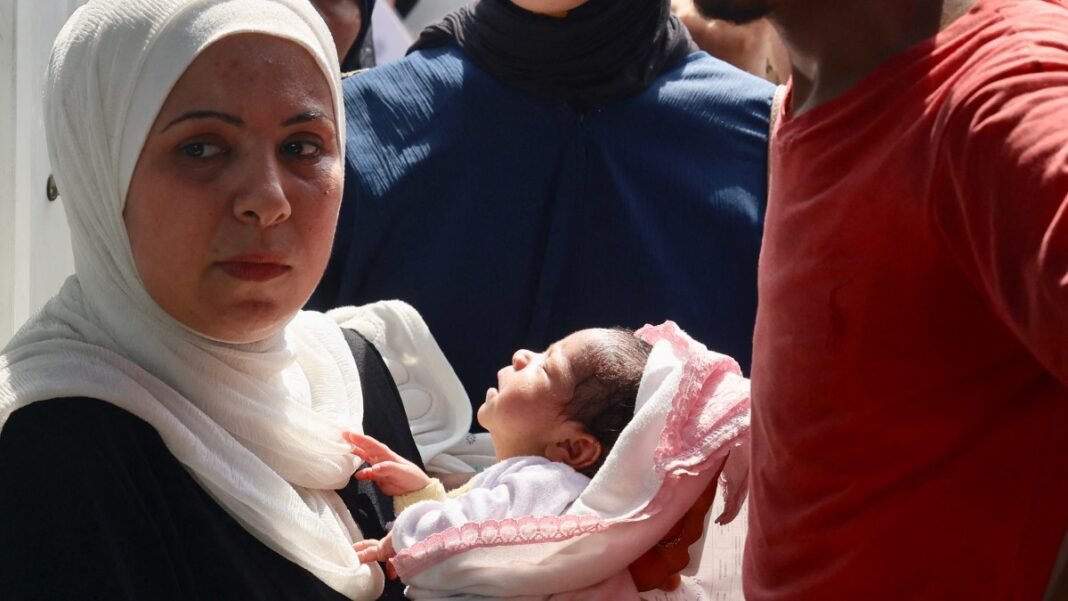Deepening humanitarian Catastrophe and Conflict in Gaza
Surging Death Toll Amid Continuous Israeli Airstrikes
Over the past day, Israeli military actions across Gaza have claimed the lives of at least 123 Palestinians, including 21 individuals who where actively seeking humanitarian aid. More than 430 others suffered injuries during these assaults, as reported by Gaza’s Health Ministry.
The crisis is further intensified by severe food shortages and malnutrition resulting from an ongoing Israeli blockade. Within the same period, eight additional people-three of whom were children-have died due to hunger-related complications. Since hostilities erupted in October 2023, hunger-induced fatalities have reached a staggering total of 235, with nearly half being children.
The Toll on Children and Healthcare Systems
The head of the UN agency for Palestinian refugees has described these casualties as part of a systematic assault on childhood in Gaza. Bombardments as the conflict escalated have injured or killed over 40,000 children. Additionally, around 17,000 minors are currently separated from their families or unaccompanied amid this chaos.
This generation faces not onyl physical harm but also profound psychological trauma; approximately one million children are enduring severe mental health challenges while being denied access to education-a situation that jeopardizes their future prospects significantly.
Healthcare infrastructure has been deliberately targeted throughout this conflict. UN human rights experts condemned what they term “medicide,” accusing Israel of systematically attacking medical personnel and facilities to cripple healthcare services across Gaza.
“The intentional destruction of hospitals alongside detention or mistreatment of health workers constitutes war crimes and elements contributing to genocide,” stated special rapporteurs monitoring health rights violations globally.
Diplomatic Initiatives: Renewed Talks for Ceasefire
As daily casualties continue rising, Hamas representatives prepared for ceasefire negotiations held in Egypt aimed at halting violence temporarily.These discussions follow earlier indirect talks hosted by Qatar that collapsed when israel and the United states withdrew after Hamas presented counterproposals.
A senior Hamas official expressed cautious optimism that dialogue could pave the way toward ending suffering through agreements focused on stopping hostilities and enabling humanitarian aid delivery into Gaza’s most affected areas.

An insider close to negotiations revealed that while Hamas views diplomacy as vital for ending bloodshed, it remains steadfast about retaining arms until formal recognition of Palestinian statehood is achieved. Meanwhile, Israeli prime Minister Benjamin Netanyahu reaffirmed his determination to continue military operations until Hamas is fully dismantled.
Israel’s Military Strategy: Securing Control Over Urban Zones
The Israeli security cabinet recently endorsed plans targeting full control over strategic urban districts within Gaza City despite widespread international criticism-including dissent voiced by factions inside Israel’s own defense circles.
Miltary Chief Eyal Zamir supported operational strategies emphasizing troop preparedness through reserve mobilization drills ahead of intensified ground offensives focusing on densely populated neighborhoods such as Zeitoun and sabra where recent airstrikes resulted in multiple civilian deaths overnight.
An eyewitness account detailed relentless shelling concentrated around eastern sectors with seven fatalities reported overnight primarily caused by heavy artillery combined with aerial bombardments targeting residential zones. Additional civilian deaths occurred among those attempting escape routes out of Sheikh Radwan amid escalating violence.
The Zikim crossing-the main entry point for aid shipments into northern regions-has become increasingly dangerous due to restricted access permissions granted sporadically alongside deadly incidents involving crowd crushes or direct fire near distribution centers.
This bottleneck worsens critical shortages faced by residents reliant on external assistance under siege conditions imposed since early spring months earlier this year.
Global Condemnation Intensifies Over Blockades Restricting Aid Flow

- A coalition comprising foreign ministers from more than twenty countries-including Canada, Japan, France-and others issued urgent calls demanding unrestricted humanitarian access into besieged territories citing “unprecedented levels” of suffering affecting all demographics caught in ongoing conflict;
- This appeal follows months-long restrictions imposed since March severely limiting deliveries except via controversial channels primarily backed diplomatically by US efforts;
- Although some easing occurred late July allowing dozens rather than hundreds daily trucks carrying essentials like food & medicine inside Gazan borders-the volume remains far below estimated needs exceeding five hundred truckloads per day according to UNRWA assessments;
- Civilians continue dying en route while attempting collection points under hazardous conditions created partly through enforced curfews combined with clashes between armed forces operating nearby;
- An autonomous observer noted growing international condemnation against policies perceived as deliberately engineering famine-like scenarios yet tangible improvements remain elusive despite global pressure campaigns aiming at alleviating civilian distress before irreversible damage occurs nationwide.
A Bleak Future Amid Prolonged Hostilities
This unfolding tragedy reflects not only immediate loss but also long-term destabilization risks threatening millions trapped within a small territory facing relentless warfare coupled with systematic deprivation tactics undermining survival chances daily.
With no clear resolution visible beyond tentative diplomatic overtures overshadowed heavily by entrenched political stances refusing compromise-the path forward demands urgent attention balancing security concerns alongside fundamental humanitarian imperatives protecting innocent lives caught between warring factions’ ambitions worldwide now more than ever before.





